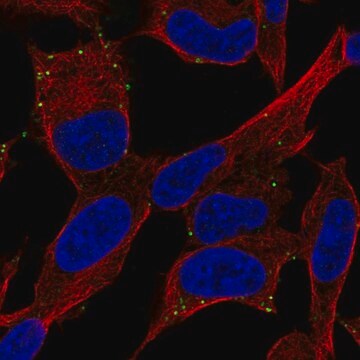About This Item
Recommended Products
form
liquid
availability
available only in Japan
pH
4.2-6.2
SMILES string
CN(C)c1ccc(cc1)\N=N\c2ccccc2C(O)=O
InChI
1S/C15H15N3O2/c1-18(2)12-9-7-11(8-10-12)16-17-14-6-4-3-5-13(14)15(19)20/h3-10H,1-2H3,(H,19,20)/b17-16+
InChI key
CEQFOVLGLXCDCX-WUKNDPDISA-N
Looking for similar products? Visit Product Comparison Guide
Suitability
Signal Word
Danger
Hazard Statements
Precautionary Statements
Hazard Classifications
Eye Irrit. 2 - Flam. Liq. 2
Storage Class Code
3 - Flammable liquids
WGK
WGK 1
Flash Point(F)
55.4 °F
Flash Point(C)
13 °C
Certificates of Analysis (COA)
Search for Certificates of Analysis (COA) by entering the products Lot/Batch Number. Lot and Batch Numbers can be found on a product’s label following the words ‘Lot’ or ‘Batch’.
Already Own This Product?
Find documentation for the products that you have recently purchased in the Document Library.
Our team of scientists has experience in all areas of research including Life Science, Material Science, Chemical Synthesis, Chromatography, Analytical and many others.
Contact Technical Service








